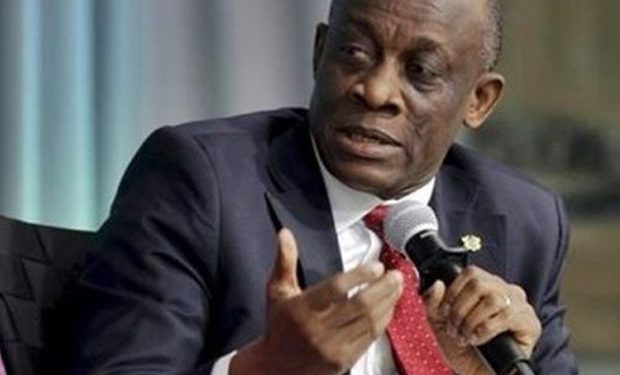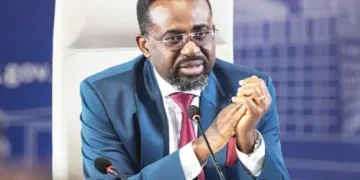Ghana Needs Economic Resilience to Break IMF Dependence – Seth Terkper
Former Finance Minister Seth Terkper has emphasized the need for Ghana to establish a robust economic framework to avoid recurrent reliance on the International Monetary Fund (IMF).
Speaking on TV3 on the topic “Economic Hurdles That Will Confront the Next Government,” Mr Terkper attributed Ghana’s economic fragility to the absence of long-term mechanisms to cushion the country during financial crises.
“For some countries, they develop counter-cyclical policies to manage their economies effectively,” he stated, drawing parallels to how Ghana could for instance manage cyclical agricultural patterns and global shocks.
Mr Terkper criticized Ghana’s inability to store and process surplus food during productive seasons, which he said necessitates food imports during lean periods. This lack of preparedness, he argued, extends beyond agriculture to financial management, where mechanisms like budget and debt buffers remain underdeveloped.
He cited Ghana’s experience during the COVID-19 pandemic as an example of the country’s reliance on external resources, asserting that the government first drew from the Stabilization Fund before resorting to borrowing.
He argued that consistent investment in reserves, such as the Stabilization Fund and Contingency Fund, would enable the country to better manage economic shocks.
Referring to past IMF engagements, Mr Terkper underscored the importance of learning from other nations that have successfully exited IMF dependency.
“Greece, Portugal, and Ireland implemented mechanisms to stabilize their economies after their crises. Ghana must do the same by building resilience to manage future challenges independently,” he noted.
Highlighting the country’s oil revenues, Mr Terkper lamented Ghana’s failure to optimize earnings from the sector. He stressed that consistent contributions to funds like the Ghana Stabilization Fund, as mandated by the Petroleum Revenue Management Act, could have cushioned the economy against shocks such as the COVID pandemic.
“Until we learn to build our own resilience, we will always find ourselves returning to the IMF,” he said.
The former Finance Minister’s remarks come amid Ghana’s ongoing Extended Credit Facility programme with the IMF.
IMF Open to Ghana Funding Rework if Reforms Aren’t Derailed
Meanwhile, the International Monetary Fund says it is open to renegotiating Ghana’s $3 billion financing program with the incoming administration provided accompanying reforms aren’t jeopardized.
“IMF-supported programs are developed collaboratively with each country’s authorities,” a spokesperson for the Washington-based lender said in response to emailed questions. “Any changes must ensure that the economic objectives of the reform programs remain achievable.”
The IMF’s primary focus under the current extended-credit facility is to support Ghana in restoring macroeconomic stability and ensuring debt sustainability while fostering long-lasting and inclusive growth, the spokesperson added.
Ghana embarked on a debt restructuring and sought IMF help when it could no longer service its loans. State debt ballooned to almost 100% of gross domestic product by the end of 2022.
The debt crisis fanned inflation, which reached 54.1% two years ago before declining to 23% at the end of November. The nation’s currency, the cedi, has depreciated about 60% in the last four years, and the central bank increased interest rates to a two-decade-high of 30% before lowering it to 27%.









Simple advice to Prez Mahama. pls forget about Terkper and all these old guards who let you down. Terkper knows “Book” Economics but our problems defy that type of Economics.
Our problems are really deep and rather need people with practical knowledge about our country’s economic structure. I do not have anybody readily in mind but surely Terkper and those making pronouncements on Econs and Finance are not the right guys for this position so far as this country is concerned. I bet Ghana will be deep in IMF if you go in for these people as your Finance Minister.
It has just occurred to me that the GUTA President Dr Obeng or so (not sure of his name) could be a much better Finance Minister or Trade Minister. His caliber and intellectuals with such practical knowledge are those you should consider giving Ministerial positions unlike these “Ma try ma kw3” of Terkper’s kind. They know how the economy is operating and forget these non starters who have never been in Industry.
A word to the wise is enough.